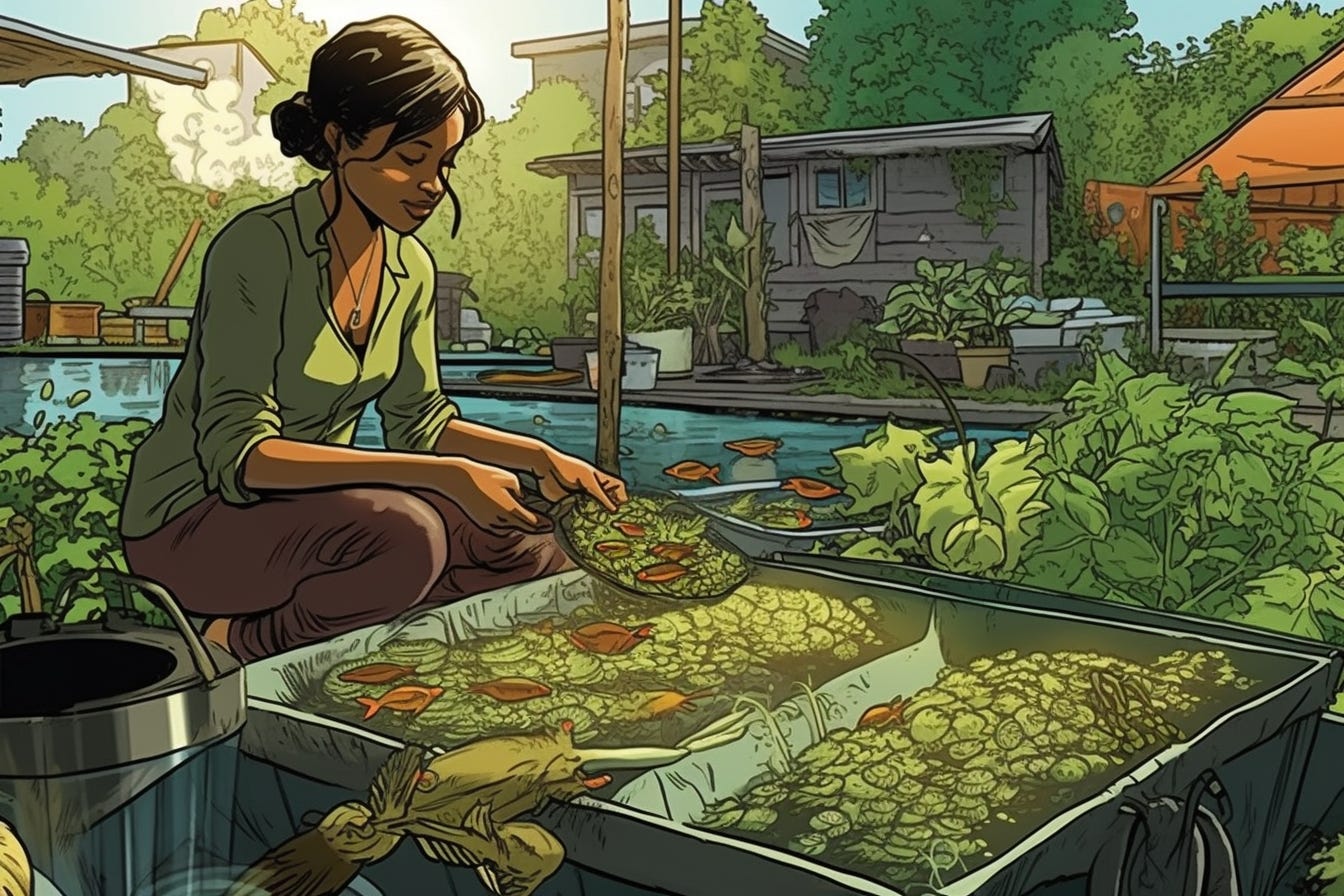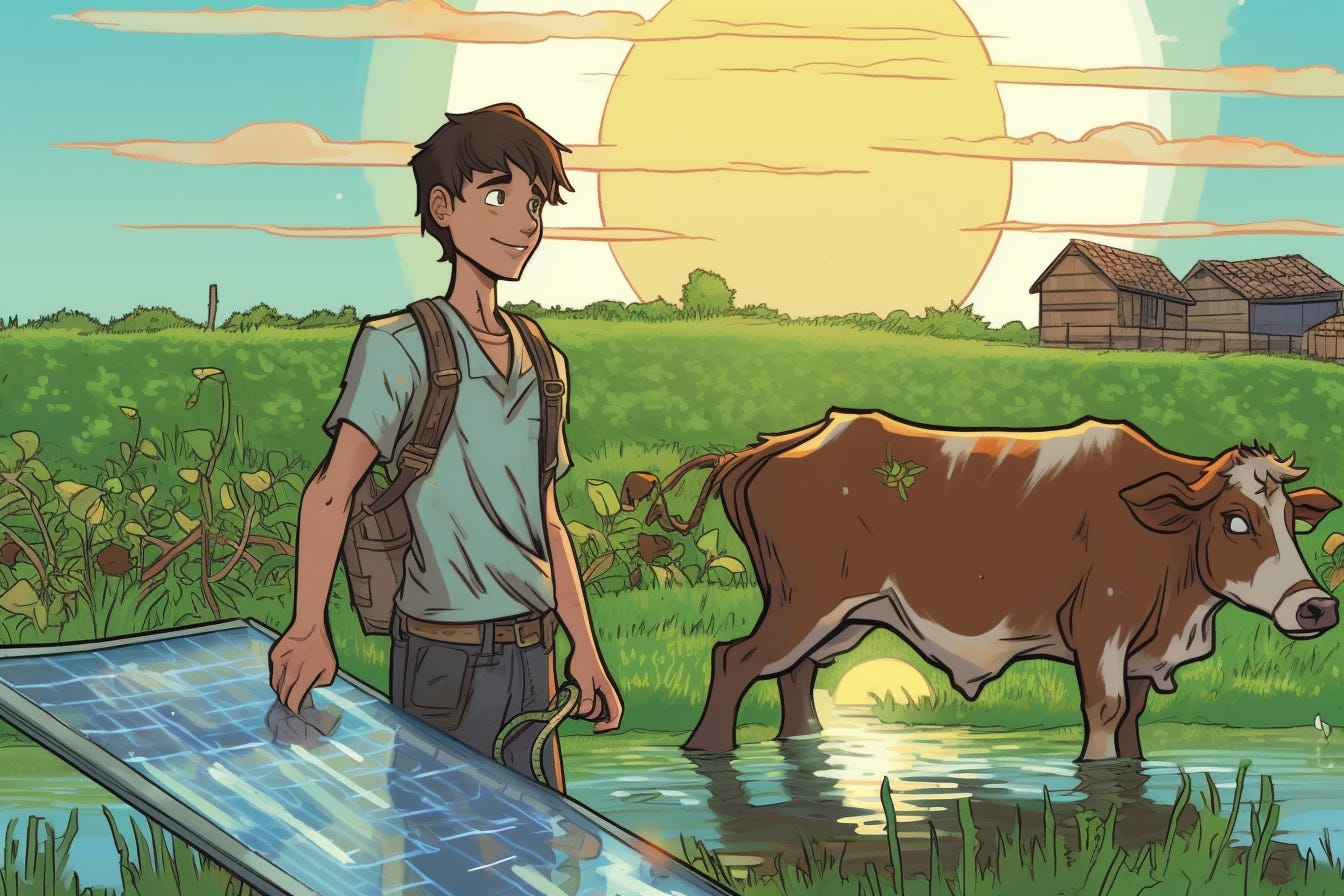Rebuilding your practical community
Using Dunbar's number to rebuild a self-supportive community of people. Could communities of roughly 150 people be enough to help sustainable, self-sufficient small-community life thrive?
“Who’s your guy?”
“I have a guy for that”
I’m sure you’ve heard these phrases or said this before. Humans today specialize. We have specialized for thousands of years. It’s a superpower we have: specializing.
When you need a product or service, often you have a specific person in your network who can handle that need.

Modern examples of “I have a guy” entail referring people to your favorite: Chiropractor, photographer, doctor, handyman, etc. However, this modern version of “I have a guy” is a weak version of what community bonds used to be.
Back in the late 1700s and early 1800s on the farm in America, you either did everything yourself or you “had a guy” to help with the specialized work. You likely make small repairs to clothing, tools and your home. You and your family likely farmed, hunted, tended the land, and harvested. However, even back in pioneer days you couldn’t do everything.
You’d need help from the blacksmith, the wheelwright, the grist miller, the cobbler, the printmaker, and various other artisans, craftsmen, and tradesman.

You might have the help of a few other families when raising your barn. A “"barn-raising” is a quintessential American tradition. This is the picture of community.
I’m trying to restore this old-fashioned community in my life today, and I’d encourage you to do the same. Here’s how:
For years I purchased all my food from Kroger, Publix or Walmart. Then I learned about the nutritional issues, how little of the dollar spent the farmer gets, the environmental damage from big agriculture and big food, and the various agendas big corporations have.
I then shifted, trying to purchase as much food locally as possible. That’s when my old-fashioned network began to grow. After buying food locally, I started to find other tradespeople locally who could help me with manufacturing projects, construction projects, and other projects in our land lab (micro-farm). Here’s my current “I have a guy” list:
Beef farmer (we purchase 1/2 a cow at a time to save on beef)
Vegetable farmer (we participate in a weekly CSA box)
Raw dairy farmer (to buy raw milk, eggs, and honey)
Heavy equipment operator (for clearing land, grading, etc)
Metal worker (for welding projects, metal cutting, tool repair)
Trusted Plumber / Good Carpenter / Handymen (construction)
Pig breeder (for purchasing our first kune kune pig)
Wheat supplier (for buying whole wheat for bread)
Bread baker (for bartering eggs from our hens for bread)
Gravel and sand delivery (for driveways and projects)
Local midwives (for the birth of our two sons)
This is just a small list, but you get the idea. I believe this process of rebuilding your practical network is part of rebuilding America. We humans were meant to live in small communities. I love small town life. We were made for it.

Research even shows that there’s a roughly ideal number of people we can maintain relationships with. This number is called “Dunbar’s Number”. I’ll explain:
Dunbar's number, proposed by anthropologist Robin Dunbar, is the cognitive limit on the number of stable social relationships an individual can maintain. It is estimated to be around 150, representing the maximum number of people with whom one can maintain regular contact and emotional closeness. The concept suggests that the size of social networks is constrained by the complexity of social interactions and the cognitive resources required. While Dunbar's number provides a useful framework for understanding social relationships, it is not an absolute limit, as individual variations and cultural factors can influence network size.
Fascinating.
And it makes total sense. If I take the time to try to list how many meaningful relationships I have in my life, before I start listing mild acquaintances, I get to around 150 people give or take.

I would argue that if the average family unit had 5 people, and if Dunbar’s number of 150 is our guideline, a community of about 30 families (150 people) could provide most of the key skills and products to support itself well: Produce, beef, eggs, honey, milk, chicken, pork, construction, plumbing, electrical, pottery, skilled-trades, accounting, legal, marketing, and so forth. This might sound nostalgic, but I do believe that groups of people who form skilled communities will far better during the decades to come. We’re on a cycle of decline globally, and it will take a few decades to pass through. The financial system is decaying here in 2023, and conflict, inflation, strife and general dysfunction will grow for years to come. Decades perhaps. This stormy season will pass eventually, but right now it’s very much ahead of us.
What if we each started trying to rely on our community more for what we needed.
What if we worked to cut out the many corporate, and bureaucratic, middlemen that add expense, regulation, and unneeded complexity to so many of life’s needs and transactions.

Our local community would benefit to a much higher degree. Our local resilience, trust, economy, and skill-sets would boom if we returned to a more local way of meeting our needs.
Do you know your beef guy?
Do you know your vegetable gal?
Do you have a honey guy?
Do you have a baker connection?
How about a pottery hookup?
Who’s your trusted electrician or plumber?
Are you embedded in a community of people with the skills and systems to care for each other?
And lastly, who are you to other people?
You need to be “the guy or gal” for others to rely on.
You need a specific skillset or product that is truly useful and practical.
Many of us still work in hyper specialized jobs in the monetary economy.
I still work in software. Most of my friends don’t need custom software from me.
You might work in finance, insurance, education, healthcare or some other large system where your skillset really isn’t hugely important for a small community. Your local friends don’t need actuarial tables computed and they likely don’t need a corporate report pulled.

What can you bring to the table?
For myself, my wife and I are raising chickens for eggs, growing produce, and breeding kune kune pigs. I might not be a metal worker, or a builder, or a beef rancher. However, our own little area helps in the broader community.
I’d like to become “the guy” for helping others design an off-grid home blueprint. Rainwater collection, PV panels, methane digesters, biochar, composting, permaculture. Weaving all of these systems together.
There is great value in restoring these basic needs within a small community.
Not only do I want to “have a guy” for the products and services my family needs, I also want to be “the guy” others can rely on and support for specific services and needs.
I’m tired of people relying on Walmart and Amazon for everything.
Let’s rely on each other more.
Life will be better for it.
Our mission at Acorn Land Labs is to share the ideas, methods, tools & concepts needed for people to leverage off-grid systems to live more freely and affordably. Go build something!
🎥 Off-Grid Systems Video Course - 10 hour off-grid systems course
📗 Acorn Off-Grid Home eBook - 50 key off-grid systems we use for living simply
🎧 Acorn Off-Grid Audiobook - 50 key off-grid systems we use for living simply
📚 Acorn Off-Grid Systems Paperback / Hardback Editions - buy on Amazon



Kemble, have you thought of adding a feature to your site that would allow readers to note their locations so they may get in contact with like minded folks in their area? The internet is a great medium for sharing information and even forging social bonds, but it cannot connect us in the communitarian ways you describe and others are longing for. Keep up the good work. I am lucky that I have always been "that guy" who people call when they need help wiring, plumbing, constructing, gardening, butchering, and other tasks. We need communities so we can pass down these invaluable skills. By they way, I am in the Central Texas/Austin area (but NOT in the city!).
Thank you for sharing this Kemble!
I have often found myself as a young adult looking for this type of community. The type of community that seeks to simplify life by cutting out all the mainstream minutia, and seeks to build one another. We often find ourselves looking for this community in all the wrong places.
There is so much more to life when you live in community. To be able to hold one another accountable, challenge each other, raise families, all while doing it together. Thank you for this vision! Have a blessed day!